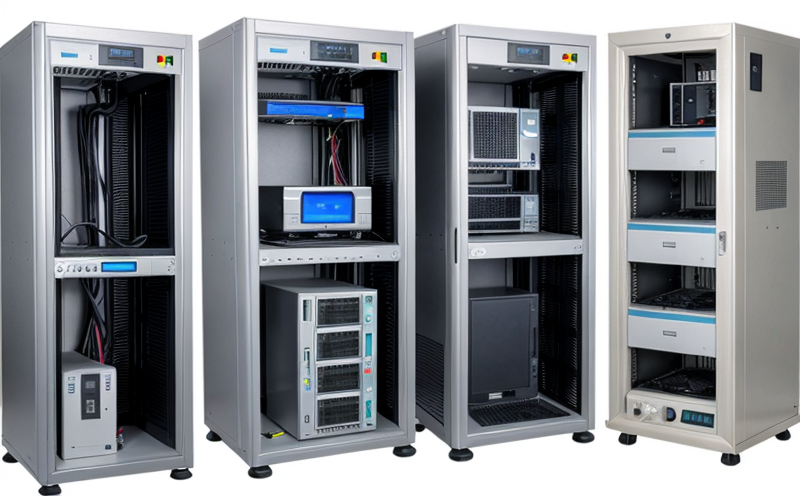ETSI EN 301 908 RF Testing for Cellular Base Stations
The European Telecommunications Standards Institute (ETSI) standard ETSI EN 301 908 specifies the radio frequency (RF) emissions and immunity requirements for base stations intended to operate in the GSM, UMTS, and LTE technologies. This testing is critical for ensuring that cellular network equipment complies with regulatory standards and operates reliably without causing interference or being susceptible to unauthorized signals.
The standard covers a broad range of RF characteristics, including emission levels, immunity against external electromagnetic fields, and antenna performance metrics. Compliance with ETSI EN 301 908 is mandatory for manufacturers aiming to sell their products in the European Union market, as it ensures interoperability and reliability across different networks.
The testing process involves a series of laboratory and field measurements aimed at evaluating the RF emissions from the base station. The standard specifies emission limits that must not be exceeded under any operating conditions and immunity levels that ensure robust performance against external interference. The process typically includes:
- Measurement of out-of-band emissions to ensure compliance with spectral mask requirements
- Evaluation of spurious emissions to prevent interference with neighboring channels
- Testing for adjacent channel power ratio (ACPR) to ensure efficient spectrum utilization
- Evaluation of immunity against electromagnetic interference using an anechoic chamber
- Determination of antenna characteristics, including polarization and directivity, to ensure proper signal coverage
The testing laboratory must be equipped with specialized equipment such as vector network analyzers (VNAs), spectrum analyzers, and anechoic chambers. These instruments are used to measure the RF signals emitted by the base station under various operating conditions. The data collected is then analyzed against the requirements specified in ETSI EN 301 908.
The importance of this testing cannot be overstated. Non-compliance can lead to regulatory fines, product recalls, and reputational damage. Moreover, failure to meet these standards can result in interoperability issues, which could disrupt network performance and user experience.
Our laboratory is equipped with state-of-the-art equipment and a team of experienced engineers who are well-versed in the nuances of ETSI EN 301 908 testing. We provide comprehensive support to ensure that your products meet all required standards, thereby minimizing the risk of non-compliance.
Why Choose This Test
The decision to undergo ETSI EN 301 908 RF testing is crucial for several reasons. Firstly, it ensures compliance with European Union regulations, which are essential for market access. Secondly, the test provides a robust framework for evaluating the performance of base station equipment under various environmental and operational conditions. Compliance with this standard can also enhance your product’s reputation, as it demonstrates adherence to international best practices.
The testing process is designed to identify potential issues early in the development cycle, allowing manufacturers to make necessary adjustments before production begins. This not only saves time but also reduces costs associated with rework and recalls. Furthermore, compliance with ETSI EN 301 908 can open up additional markets beyond the EU, as many countries worldwide adopt similar standards.
Our team of experts offers a range of services to support your testing needs, including:
- Comprehensive pre-compliance assessments
- Guidance on regulatory requirements and best practices
- Expert consultation for product design and development
- Accurate and reliable test results
- Support throughout the entire testing process
- Detailed reporting and analysis of test data
We understand that compliance can be a complex and time-consuming process. Our goal is to simplify this journey for you, ensuring that your products meet all necessary standards with minimal disruption to your business.
International Acceptance and Recognition
The ETSI EN 301 908 standard has gained widespread acceptance across the telecommunications industry. Its rigorous requirements ensure that base station equipment operates reliably in a variety of environments, contributing to the overall robustness of cellular networks.
Many countries around the world have adopted or are considering adopting similar standards for their own market access regulations. This global recognition underscores the importance of compliance with ETSI EN 301 908. By ensuring that your products meet these standards, you can position yourself favorably in a competitive market and expand your customer base.
The standard is based on international best practices and aligns with other relevant standards such as ISO/IEC 17025, which ensures the competence of testing laboratories. This alignment provides additional assurance that our testing services meet the highest quality standards.
Competitive Advantage and Market Impact
- Enhanced Reputation: Compliance with ETSI EN 301 908 enhances your product’s reputation, demonstrating a commitment to high-quality standards.
- Market Access: Ensures that your products can be sold in the European Union and other markets adopting similar standards.
- Interoperability: By meeting these stringent requirements, you ensure seamless integration with existing network infrastructure.
- Risk Mitigation: Early detection of potential issues through comprehensive testing minimizes the risk of regulatory fines and product recalls.
- Competitive Edge: Demonstrating compliance can give your products a competitive edge in a crowded market, attracting more customers and partnerships.
- Customer Satisfaction: Reliable performance and robustness contribute to higher customer satisfaction and loyalty.
The impact of ETSI EN 301 908 extends beyond individual products. It contributes to the overall reliability and resilience of cellular networks, which is essential for supporting modern communication needs.





